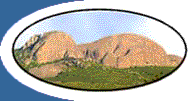BEING September when spring is in the air, with the wild flowers blooming, I acted on a wish I have had for the last sixteen years, to visit the picnic site Meulwater on Paarl Mountain.
I had been out of the country for thirty years in exile in Zambia, Tanzania and Zimbabwe. From being a teacher in a primary school I had now become a graduate with a Masters Degree in Development Studies.
I was a free-lance journalist who had travelled to many countries like China, Syria, Egypt, India and Europe. Perhaps I can inspire our young people to follow in my footsteps.
I was not a member of the ANC, but the Unity Movement. During the forties and fifties we were active in Paarl with Ronnie Britten and Mrs Richards. Meetings were held in the Forester Hall during those years.
Life was really tough in exile, especially if you are a woman in a male dominated society. The pull to come back home was there. My husband Karrim Essack was also a member of the Unity Movement, when he left the country in 1964. He would not accompany me home after the negotiated settlement as he died in Dar-es-Salaam Tanzania in 1997.
I wanted to walk the paths on Paarl Mountain. I have been longing to be back on the mountain to recapture the time we played and camped on its slopes.
We also walked from Noorder Paarl to the area near Paarl Rock where there was the “Seilsklip”. There my uncles would gather branches and we would clamber to the top and glide down at great speed. Meulwater was not really our playground as it was far from Noorder Paarl.
I questioned the late John Newman, also from Paarl, about people who stayed near the slopes a few years ago (he passed away two years ago). He told me about the area along the slopes near Berg Street. This is also the part that was in Paarl South nearer to Jones’s canning factory. The people had orchards and used to supply the canning factory with figs for fig jam.
However the Apartheid authorities that were in charge of the country also destroyed the orchards of the people who were not white. The Group Areas Act ensured that they were moved to places far from the mountain. The areas along the slopes of Paarl Mountain appear to have been sold off. The small mountain paths are gone.
There is still a great deal of bitterness and deep resentment. I stood in Grawe Street where our family lived.
No one can describe your feelings seeing your old homestead occupied by those who were the privileged voters of our country at that time.
The Paarl people seem to be in denial about those wonderful years when the mountain was like our playground. Families came from Cape Town to climb up the slopes. My late grandparents also struggled up to the cooling springs with its crystal clear water. Today people have become estranged from this glorious heritage site.
The day we visited Meulwater was 14 September. I hired the taxi. It waited for us at the station.
We picked up Edwin Harris and his mother Annie. Edwin is a disabled young man suffering from cerebral palsy and is confined to a wheel-chair. I wanted him to have the pleasure of seeing the town from the mountain.
We were driven up the winding road where I was shocked to see the present state of the mountain after a fire.
We arrived at Meulwater picnic site where there is a small waterfall and a natural pool with a few flowers along its edges.
I got out of the vehicle and walked towards the “Seilsklip” and the Paarl Rock. We were too far to see the big rock we used to climb and slide down. However we had the clean mountain air. I filled my lungs and my whole being with it. All the stresses and strains slowly drained out.
We stood gazing down at the bustling town of Paarl below. Annie Harris was beside me. She also had all her memories of the past. They used to live in Sanddrift Street, but now live on what is called Charleston Hill, miles from the mountain.
How we wish we can have our heritage back with flowers and trees along the slopes of our beloved mountain, the pure mountain air for our people to breathe and enjoy. The fences that are now along the road should be removed - these are barriers to our heritage.
Elma Carolissen-Essack (Wynberg)


